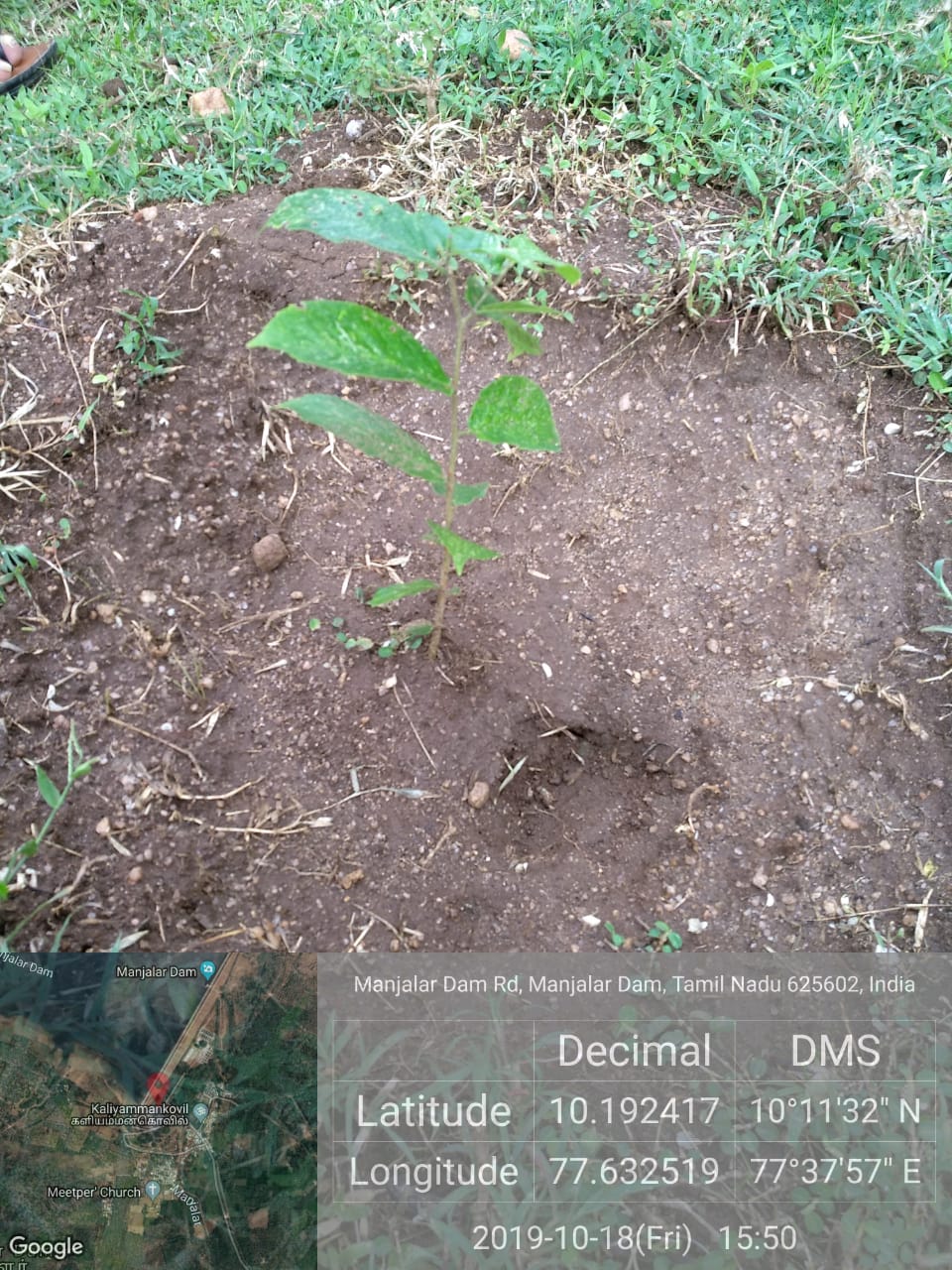
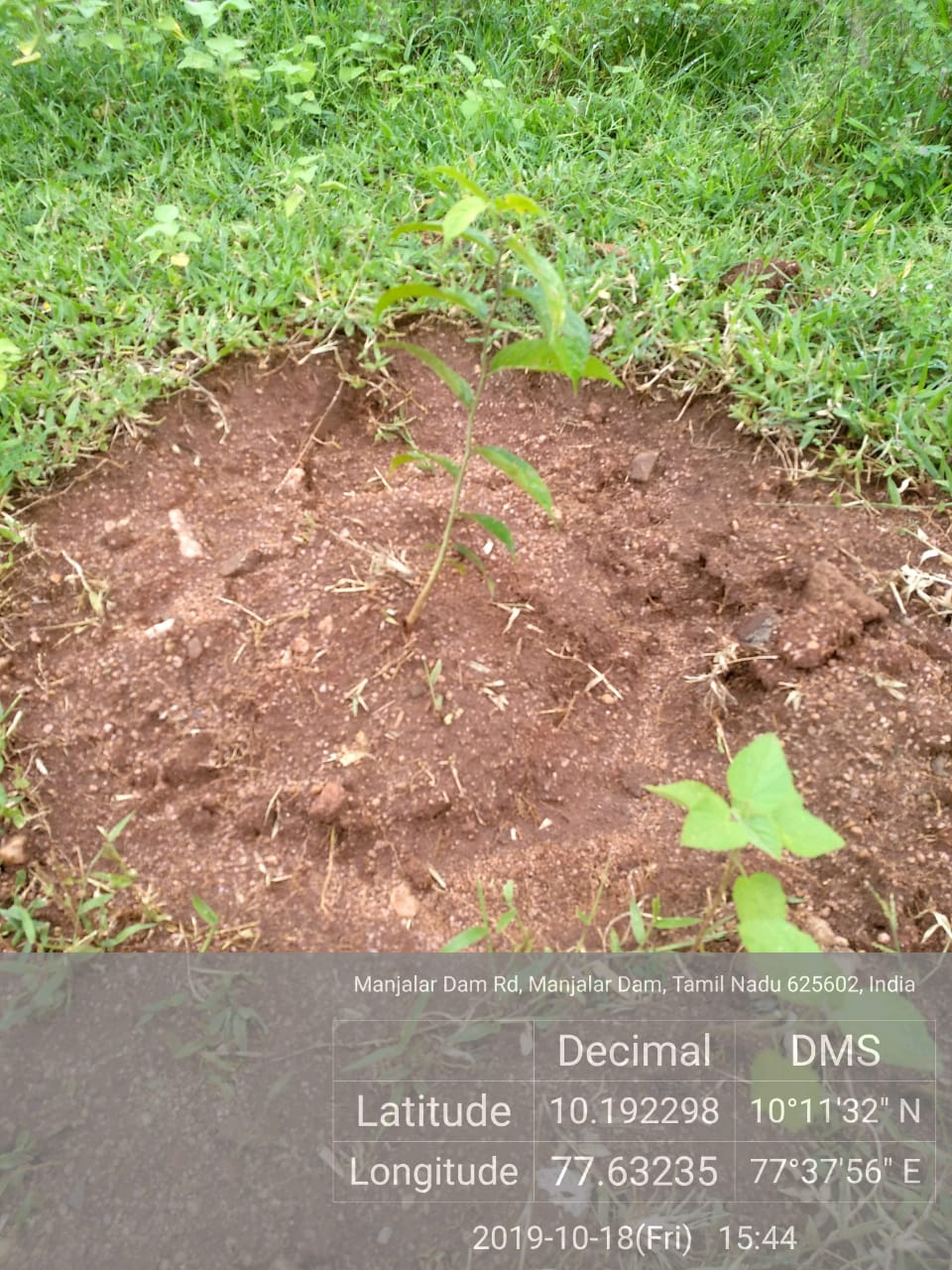


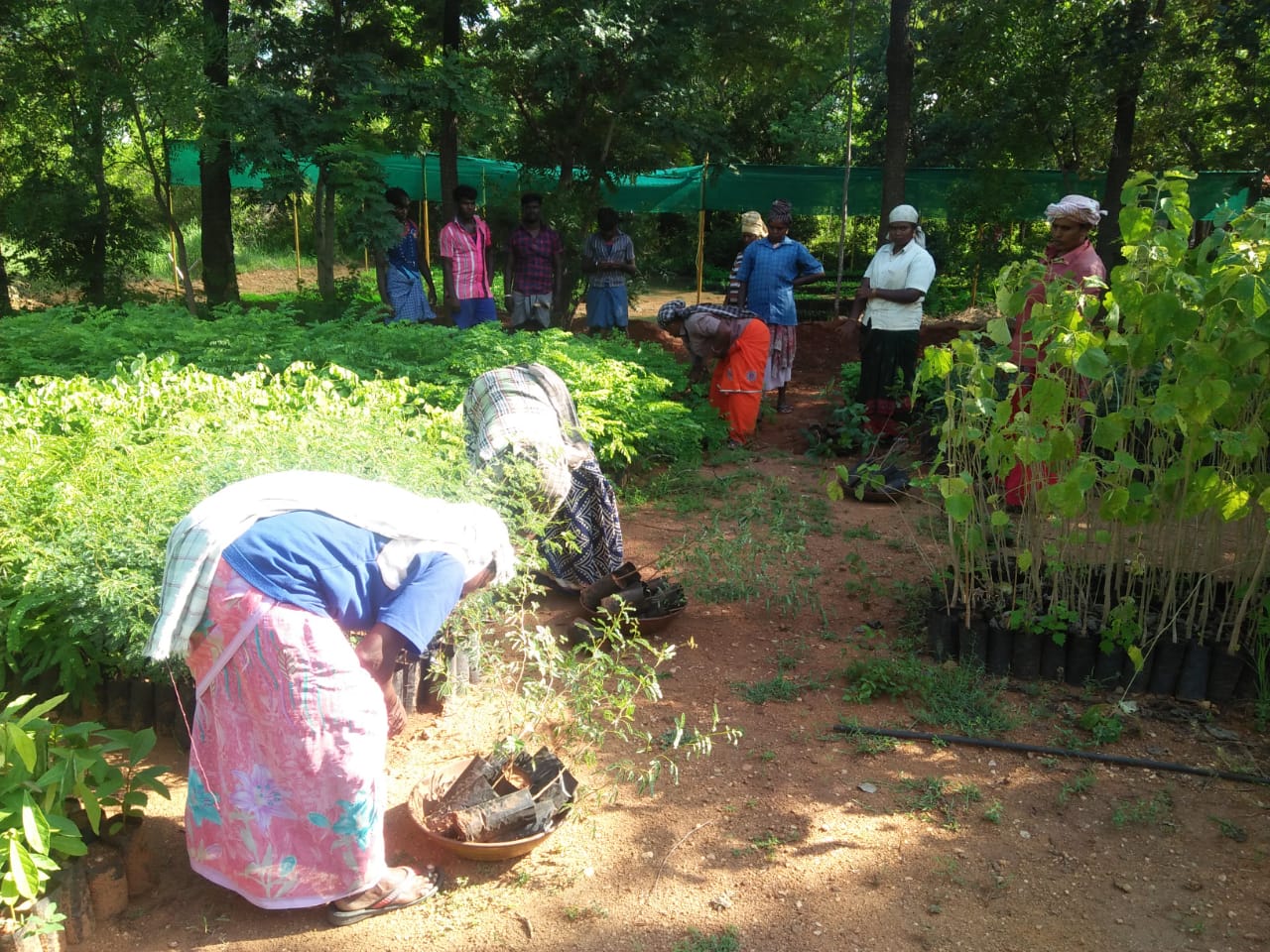
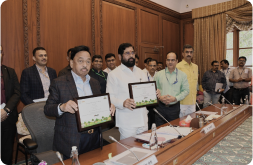
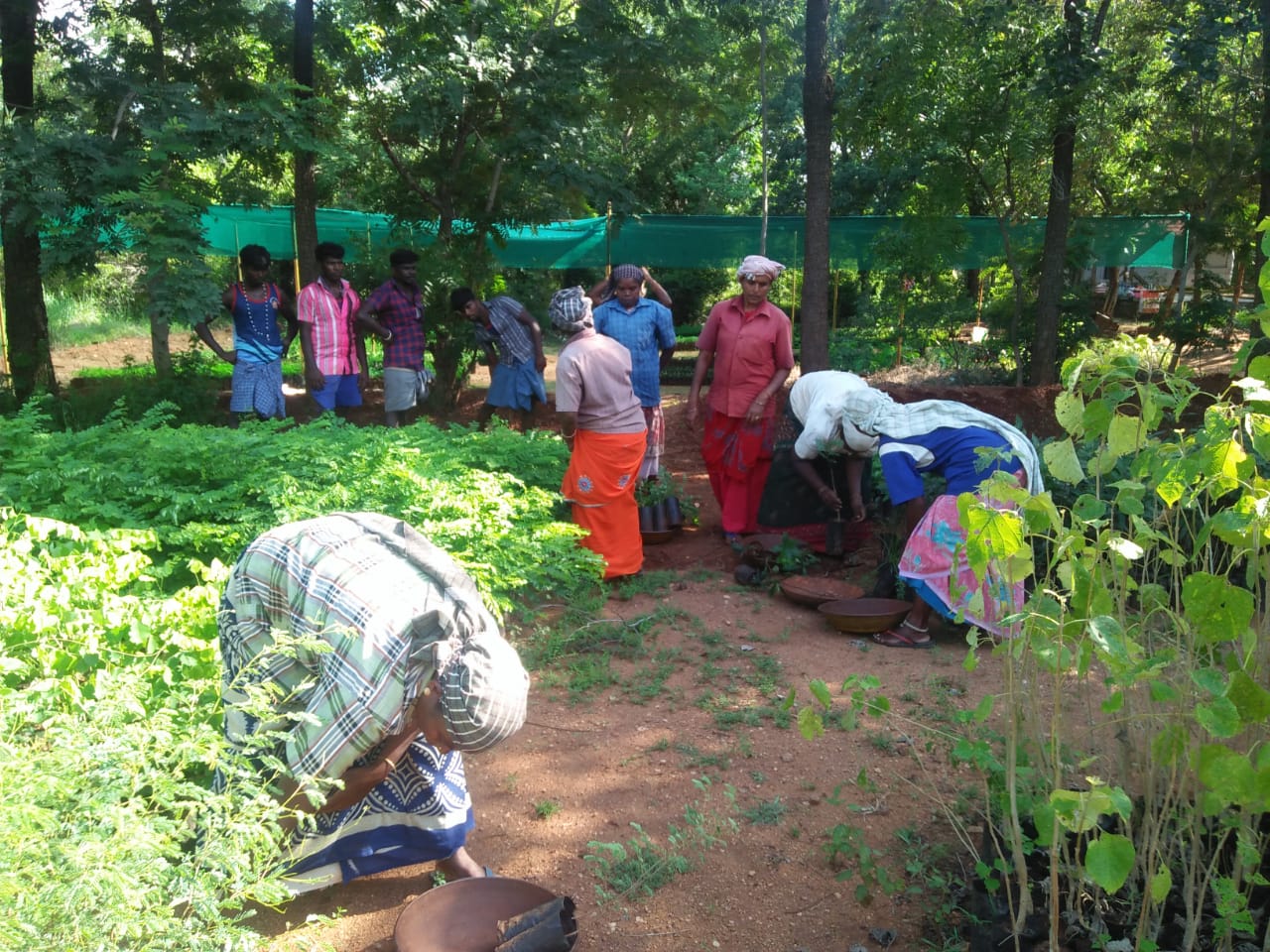
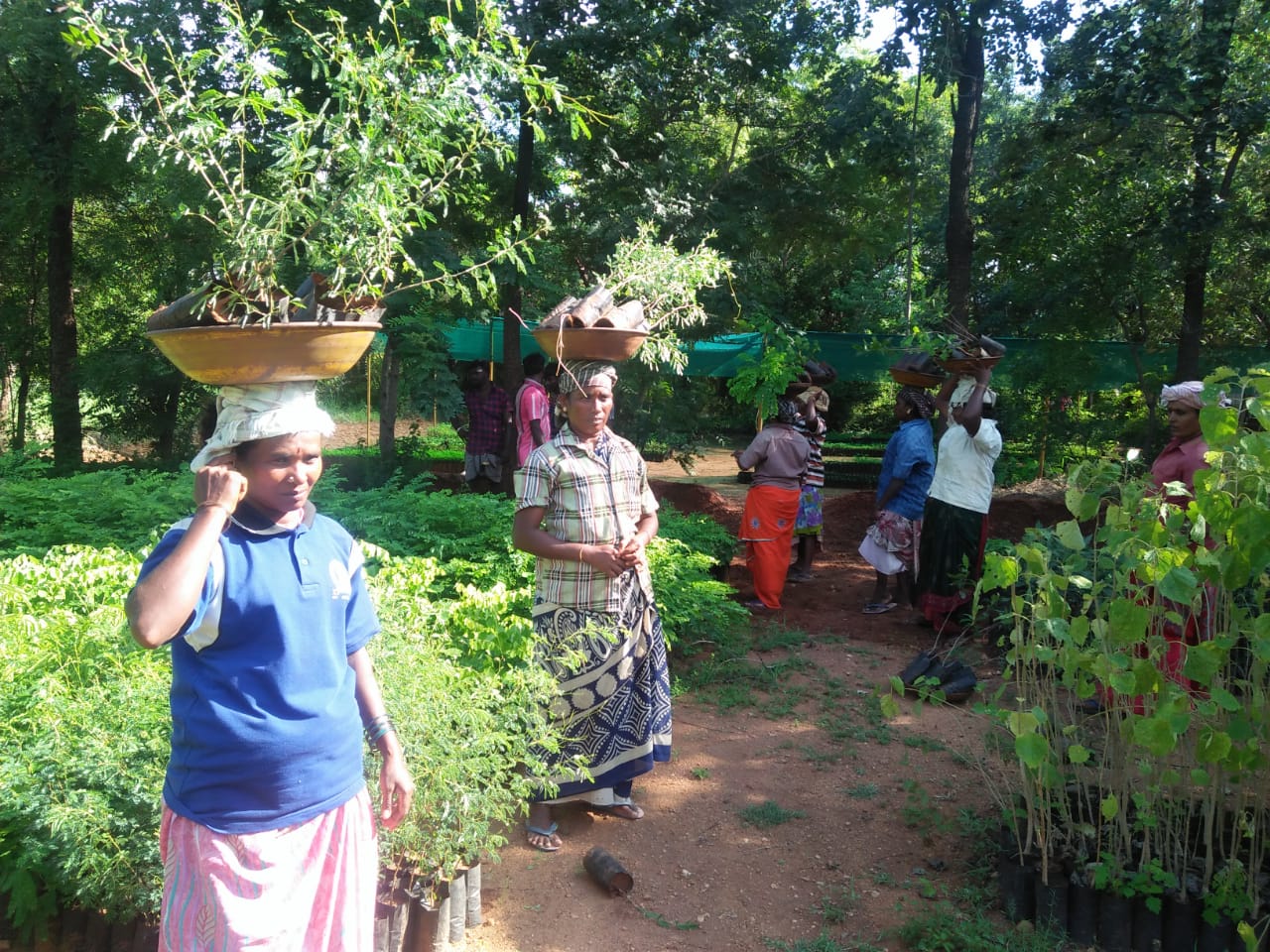
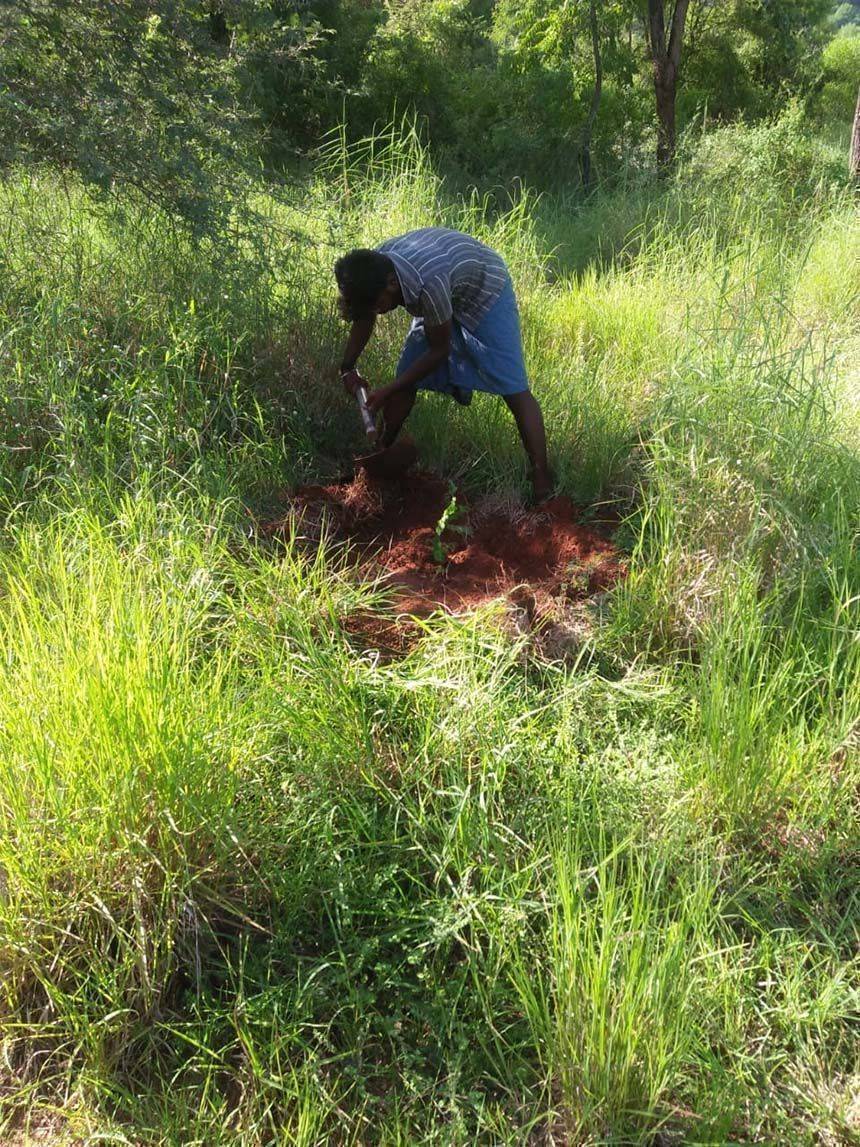
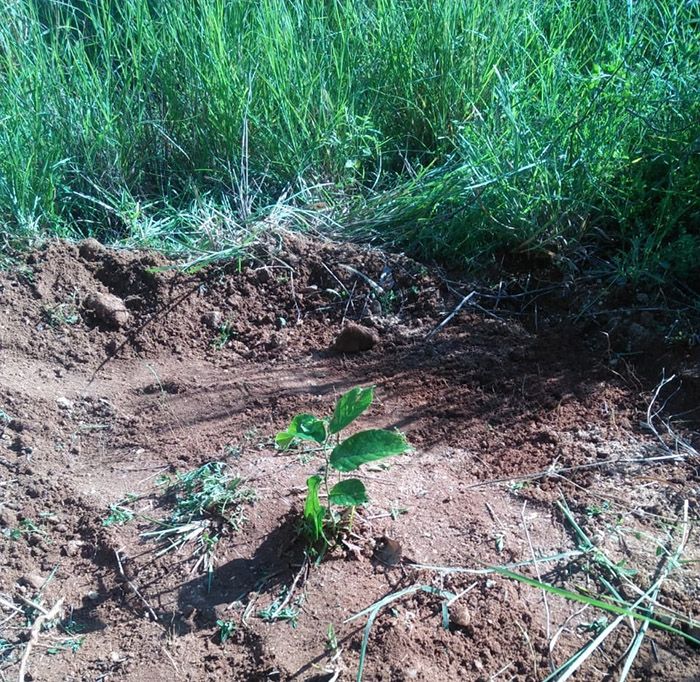
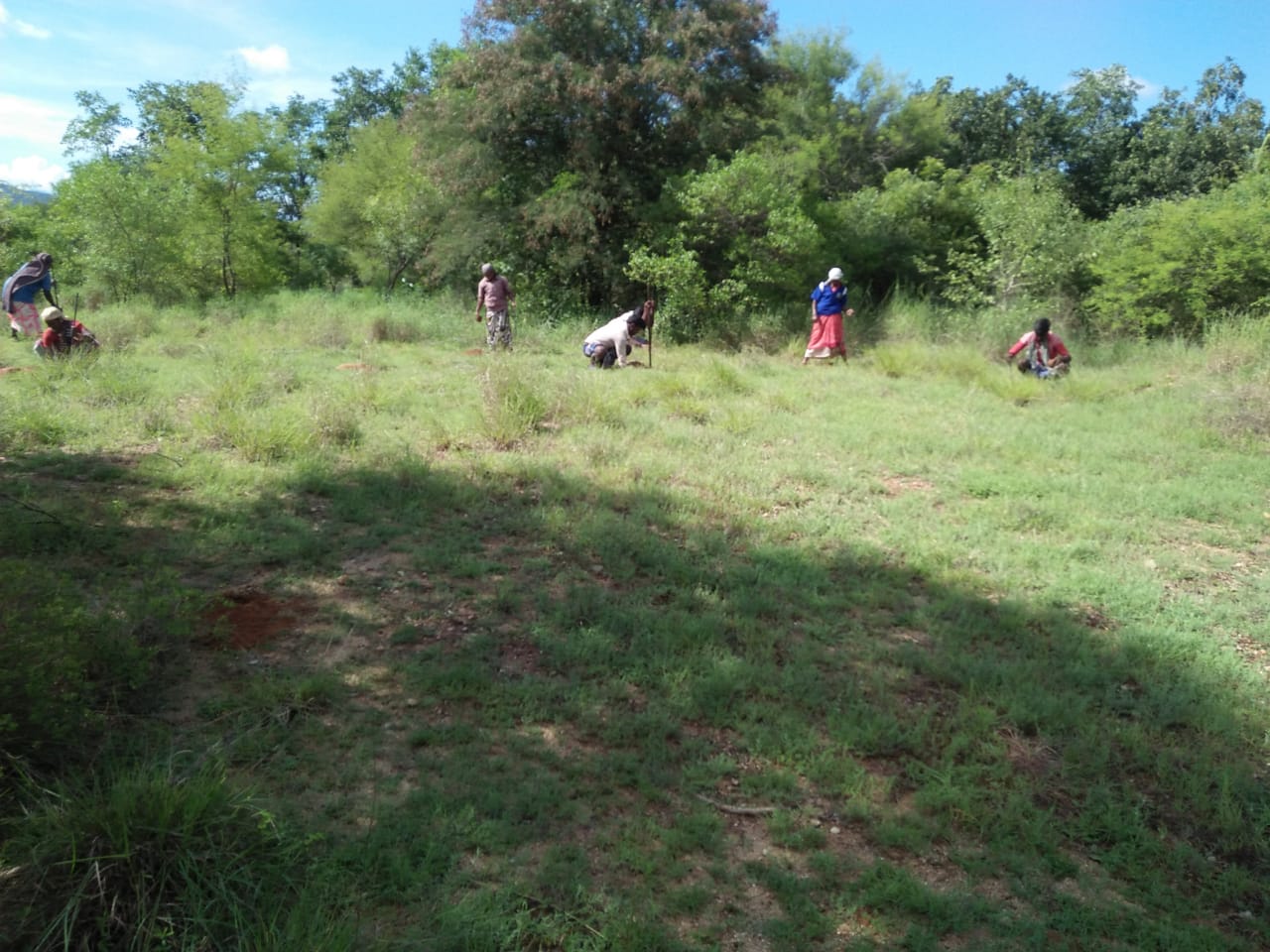
Project Target
0% Remaining
47,500
Trees Planted out of 47,500 Trees

Project Location:
Plantation of local tree saplings adjoining the Manjalar Dam Watershed, situated in Periyakulam Taluk of Theni District and the Kuthiraiyar Dam Watershed, situated in Palani Taluk of Dindigul District, Tamil Nadu, India. The plantation area is located amidst Periyar and the Anamalai Tiger Reserves.
Project Aim
“Sedimentation and siltation of reservoirs is a matter of vital concern in all water bodies” (Compendium of silting of reservoirs in India, April 2015). Optimal management of water resources is the prime necessity of our time, owing to the growing population and development. To check surface run-off and sediment flow to water bodies, plantation of the right tree species can be an efficient solution, enhancing biodiversity habitats and the forest products that can be utilised by locals. Vegetation and plant debris slow surface runoff, preventing sediment and sediment-bound contaminants from entering surface water. Once in the soil, contaminants can be immobilized and transformed by soil microbes or taken up by vegetation. Groundwater flowing through the root zone is also filtered by these processes. Additionally, trees can trap windblown dust before it enters stream and lakes’ (United States Department of Agriculture). Thus, the plantation of the right local tree species with the help of our planting partner, UEF, along the catchment of the Manjalar helps in improving the water quality with a check on reservoir siltation with enhanced carbon sequestration potential.
Jamun (Syzygium Cumini), Tamarind(Tamarindus indica), Neem (Azadirachta indica), Malai Vembu(Melia dubia), Kapok tree (Ceiba pentandra), Pongam Oil (Pongamia pinnata), Amla(Emblica officinalis), Arjun(Terminalia arjuna), Siris(Albizia lebbeck), Acacia (Acacia auriculiformis), Teak(Tectona grandis), Mast Tree(Pithecallobium dulce), Belliric (Terminalia bellirica), Flame of the forest(Butea monospermum), Wood Apple (Feronia limonia), Custard apple(Annona squamosa), Hopbush (Dodonaea viscosa), Anjan (Hardwickia Pinnata), White siris (Acacia procera), Jhinjhora (Bauhinia racemosa), (Acacia ferruginea), Indian elm(Holoptelea integrifolia), Pala-Indigo(Wrightia tinctoria), Babul(Accia nilotica), Siris(Albizia lebbeck), Lallei(Albizia amara), Soapnut(Sapindus emarginata), Sage leaved(Alangium salvifolium), Indian Laburnum(Cassia fistula), Kassod(Cassia siamea), Paani Vaagai (Dalbergia paniculata)
The plantation of valued tree trees among the identified sites will enhance the biodiversity of the region. Local livelihoods are mostly dependent on forest resources such as fruit, fodder, gum, honey, biomass, fuelwood, etc. The local economy comprising of families living below the poverty line will improve over time. The selected area is inhabited mostly by the Palaiyar community. They are traditional nomadic hunter-gatherers, honey hunters, and foragers. The Palaiyar community livelihood subsists on trades of forest products, food cultivation, and beekeeping. Some work intermittently as wage labourers, mostly on plantations. (Culture and lifestyle of Paliyan tribes, Social Research Journal, K Shenbaham). Locals show a high dependency on forest resources. They collect Jamun, amla, neem, tamarind, wild-honey, and fish.
Coconut, maize, paddy, sugarcane, and mango are major cash crops in the region. Increasing incidences of crop depredation from wild animals like wild boar, monkey, bison, deer cause major damages to this sensitive local economy. Additionally, implementing the project would be able to create about 3,000 rural workdays, supplementing to sensitive local economy reaching out to nearly 200 households mainly living below the poverty line. The project would also create awareness and involve the community directly in conservation action taking sustainable developmental pathways.
| Name of the Company | Number of Trees | FY |
|---|---|---|
| Temenos India Private Limited | 25,000 | 2021-22 |
| World Wide Fund (WWF) | 15,000 | 2019-20 |
| Larsen & Toubro Infotech | 7,500 | 2018-19 |
Social Impact of Growing Trees
Community Engagement
Tree planting initiatives often involve local communities, which can lead to greater community cohesion.
Ecological Education
Provides opportunities for community members, especially children, about the importance of environmental sustainability.
Urban Beautification
Trees contribute to the aesthetic enhancement of urban areas, making cities more pleasant and liveable.
Climate Resilience
By improving green cover, tree planting helps make communities more resilient against climate impacts like heatwaves.
Employment Creation
Planting trees creates employment for local community members like planting and maintenance, administrative roles, and more long-term jobs in management.
Wildlife Habitat
Trees provide critical habitats for various species of wildlife. Enhancing tree cover helps preserve biodiversity, which can be an ecological boon for local communities
Copyrights @ 2025 All rights reserved by Pangea EcoNetAssets Pvt Ltd.